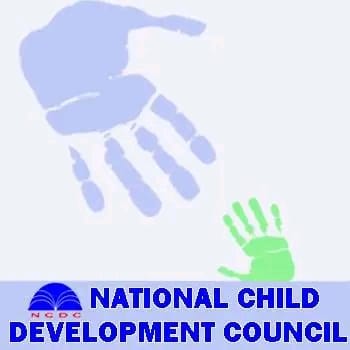NCDC core committee deliberates student safety and mental health concerns, demands tighter laws and awareness
Srinagar (J&K): The National Child Development Council (NCDC) Core Committee held an important meeting to discuss increasing concerns regarding the safety of students, mental health, and the necessity of enhanced institutional and legal interventions to avoid bullying and harassment in schools.
The committee members, under the chairmanship of NCDC Master Trainer Baba Alexander discussed several matters related to the emotional well-being of children, the responsibility of educational institutions, and the joint responsibility of teachers, parents, and society to protect students.
Mohammad Rizwan, one of the prominent committee members, pointed out the shocking rise in incidents of harassment and bullying within educational institutions. He emphasized the need for a clearly defined legal framework to address such abuses. Rizwan stressed that, in addition to safeguarding the students, it should be guaranteed that good quality counseling is maintained from the onset so that the students realize their rights and are aware of legal repercussions against harassments. “Right from the start, we need to inculcate sessions of counseling with a view to creating awareness on the law as well as consequences of such crimes,” he emphasized.
NCDC core committee member Shakila Wahab emphasized the provisions of law that are already in place, specifically the 1998 Act (IPC Section 294) that deals with harassment and bullying, and defined the punishment for the offenders. The punishment ranges from imprisonment for two years, fine up to ₹10,000, expulsion from schools, and a three-year prohibition on admission to any other school. She highlighted the need for strict enforcement of these legislations to stem the growing wave of bullying and its ruinous effects on the mental health of students.
Shakila went on to clarify that bullying in or out of school severely demoralizes students and has adverse effects on their mental well-being. She underscored the fact that the psychological damage of bullying can be long-standing and must be dealt with by a mix of legal measures and emotional healing mechanisms.
Shakila Wahab also mentioned how understanding the psychological reasons for the bullying is also crucial. Several children who exhibit such violent behavior are also themselves victims of neglect or physical abuse at home. Lack of emotional space or care at home gives rise to disciplinary problems at school. “These children might be having their own individual problems, which they are expressing as aggression towards others,” Shakila said. She recommended a more holistic approach, where counseling and psychological intervention could assist victims and bullies alike.
Another NCDC core committe member Ms Bindu presented a convincing argument regarding children being taught both their rights as well as responsibilities. She advocated that schools set clear policies as well as conduct training programs that would ensure a ban on humiliation and bullying. In Bindu’s opinion, the school setting should promote respectful relationships among individuals, where every child feels regarded.
She indicated that schools, more often than not, put their reputation ahead of the welfare of children, and this results in ignoring the emotional and psychological needs of children. “A child’s life and well-being should be more important than the school’s reputation,” Bindu said, calling on schools to implement strong anti-bullying policies and act firmly when breaches are made.
It also brought into focus the importance of teachers and parents in identifying and meeting students’ emotional needs. Bindu stressed that teachers need to establish strong, caring relationships with students, providing a space where children feel safe to bring out their problems. “Teachers need to be able to recognize emotional changes in children and make them feel heard and supported,” she said. In addition, any problems that students may have should be kept confidential and handled sensitively, with the parents of the child and, if needed, legal authorities.
Bindu also emphasized the need for parents to spend quality time with their children. She noted that most parents, because of work, tend to overlook the emotional problems their children might be experiencing. Sometimes, students transfer from school to school, signifying more ingrained problems which were not corrected. “Parents must always sit with their kids, know about their issues and help them during any emotional or psychological issues,” Bindu suggested. She requested teachers and parents to work hand in hand for ensuring students have the emotional guidance they need in both school and home.
NCDC core committee members Ms. Sheeba, Radha Sajeev & others also shed light on various aspects related to the topic.
The committee came to the conclusion that combating bullying and its effects on students calls for a comprehensive strategy. This entails strict application of laws, the adoption of anti-bullying policies in schools, as well as the offer of psychological care and counseling. Through combined efforts, teachers, parents, and mental health experts can assist the children in overcoming bullying trauma and ensuring their general well-being.
The meeting of the NCDC Core Committee highlighted the gravity of these matters and necessitated a stronger legal and institutional setup to safeguard students. The committee members including concurred that it is imperative to build a safer, more conducive environment for education to promote the mental and emotional development of children, particularly during the early years of their schooling.





